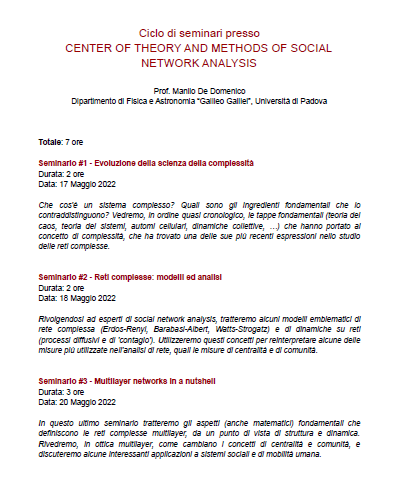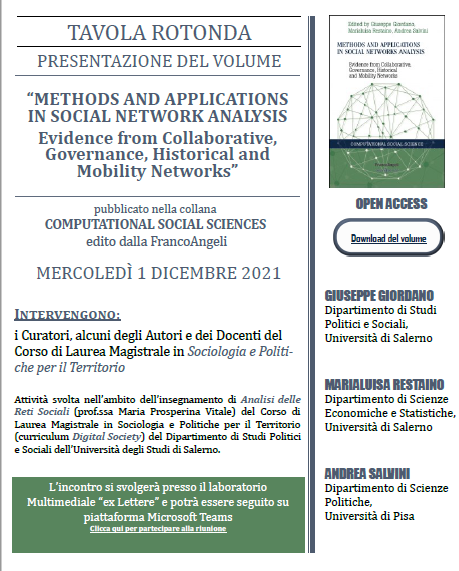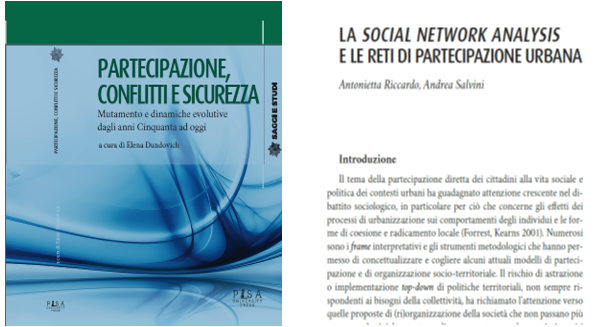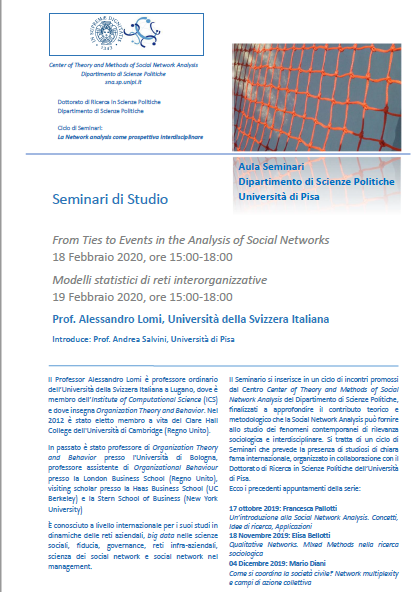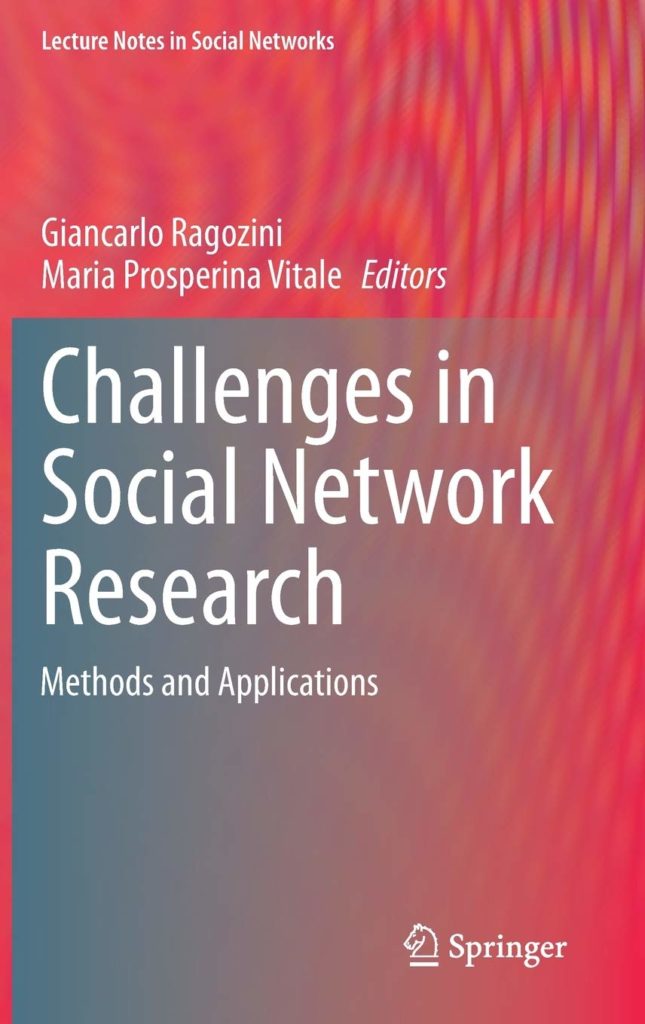Happy to share that we have an abstract accepted for #Networks2021!
For more info about Networks 2021, click https://networks2021.net/
For more info about our abstracts, please see below:
Analysis of urban participation networks through Multilevel Ergm
Authors: Andrea Salvini and Antonietta Riccardo
Abstract
Recent application examples of Social Network Analysis show the capability of this theoretical and methodological perspective to capture the complexity of system interactions, in particular forms of multilevel dependencies that affect the formation of interpersonal connections.
Some of the most promising statistical models used for multilevel dependencies analysis are multilevel exponential random graph models (MERGMs), belonging to ERGM models family: analytical tools potentially able to analyse multi-level networks. MERGMs offer a statistical strategy that captures this complex structure through certain network configurations based on the assumptions of constraint dependence; according to this approach, these configurations should provide evidence on the social processes that give rise to the network structure observed at the micro level (Wang et al., 2013).
The general aim is to show how these models are fit for analysis of urban participation networks, a combination of flows and people, both at a micro, meso and a macro level: they are characterized by a complex social morphology since they are embedded in larger structures which can include several levels of action or layers of the urban social system. The tendency of citizens to form interpersonal links depends not only on spatial co-habitation, but also on other types of relational micro dimensions to which they are affiliated in, and on the incorporation of these relational structures in a macro (districts, neighborhoods) urban context. The multilevel perspective is based on the idea that social contexts are not simply made up of “alters” as social actors, but rather of differentiated social foci around which shared activities are organised. Such social foci tend to induce dependency relationships among participants because: “individuals will tend to create interpersonal links to form a group” (Feld 1981, p. 1015) and thus to condition each other.
In this sense, a very interesting cognitive challenge will be offered by the experience of urban participation of the so-called Quartieri Uniti Eco Solidali (QUES) in the city of Livorno, Italy. The aim of these neighbourhood groups is to create a participatory process aimed at building an eco-solidarity neighbourhood model based on a network adopting solidarity and environmental sustainability practices. The ultimate goal is to create a real network of neighbourhoods throughout the city in order to experiment with methods of bottom-up democracy.
The paper aims to report on an empirical research conducted within the QUES groups, carried out according to the perspective of SNA and Mergms, aimed at understanding the structure of the relationships among members and among the groups themselves, in order to understand their characteristics and properties at different levels. The research questions that the survey attempted to answer are, in particular:
- Participation in the same urban participation events or engagement in thematic groups formed across neighbourhood (macro-level network) is a factor able to influence the structure of the intra-neighbourhood networks (micro-level network) and vice versa;
- Ques participation networks have led to increased levels of civic engagement and collective efficacy;
- MERGM can represent a feasible analytical strategy to represent multi-level mechanisms of network link formation.
